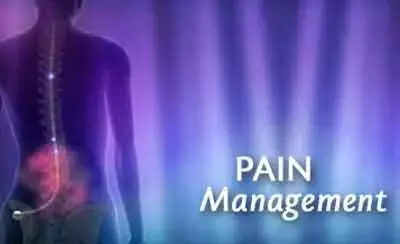- Home
- Medical news & Guidelines
- Anesthesiology
- Cardiology and CTVS
- Critical Care
- Dentistry
- Dermatology
- Diabetes and Endocrinology
- ENT
- Gastroenterology
- Medicine
- Nephrology
- Neurology
- Obstretics-Gynaecology
- Oncology
- Ophthalmology
- Orthopaedics
- Pediatrics-Neonatology
- Psychiatry
- Pulmonology
- Radiology
- Surgery
- Urology
- Laboratory Medicine
- Diet
- Nursing
- Paramedical
- Physiotherapy
- Health news
- Fact Check
- Bone Health Fact Check
- Brain Health Fact Check
- Cancer Related Fact Check
- Child Care Fact Check
- Dental and oral health fact check
- Diabetes and metabolic health fact check
- Diet and Nutrition Fact Check
- Eye and ENT Care Fact Check
- Fitness fact check
- Gut health fact check
- Heart health fact check
- Kidney health fact check
- Medical education fact check
- Men's health fact check
- Respiratory fact check
- Skin and hair care fact check
- Vaccine and Immunization fact check
- Women's health fact check
- AYUSH
- State News
- Andaman and Nicobar Islands
- Andhra Pradesh
- Arunachal Pradesh
- Assam
- Bihar
- Chandigarh
- Chattisgarh
- Dadra and Nagar Haveli
- Daman and Diu
- Delhi
- Goa
- Gujarat
- Haryana
- Himachal Pradesh
- Jammu & Kashmir
- Jharkhand
- Karnataka
- Kerala
- Ladakh
- Lakshadweep
- Madhya Pradesh
- Maharashtra
- Manipur
- Meghalaya
- Mizoram
- Nagaland
- Odisha
- Puducherry
- Punjab
- Rajasthan
- Sikkim
- Tamil Nadu
- Telangana
- Tripura
- Uttar Pradesh
- Uttrakhand
- West Bengal
- Medical Education
- Industry
Standard dose of duloxetine effective for managing chronic pain in adults

A study published in the Cochrane Database of Systematic Reviews entitled "Antidepressants for pain management in adults with chronic pain: a network meta‐analysis has concluded that Duloxetine, an antidepressant, has a moderate effect on reducing chronic pain. They elaborated, saying the higher doses of Duloxetine have no extra benefits than standard doses. They added details on data mentioning, "For every 1000 people taking duloxetine in a standard dose, 435 will experience 50% pain relief than 287 who will experience 50% pain relief taking placebo."
They also said, "Milnacipran may reduce pain, but we are not as confident in this result."
It is already known that Chronic pain lasts for more than three months and affects people's mood and well‐being. It hampers one's ability to perform routine tasks and is common among adults. Overall adversely impacts physical ability, well‐being, and quality of life. Researchers in previous studies have stated that certain antidepressants may effectively reduce pain. They can also be beneficial about improvement in patients' global impression of change for chronic pain conditions. There needs to be more research and data on the role of antidepressants on this subject.
Researchers in this study assessed the comparative efficacy and safety of antidepressants. They included adults with chronic pain except for headaches and researched databases. The RCTs examined antidepressants for chronic pain against any comparator.
The primary outcomes measured were substantial (50%) pain relief, pain intensity, mood, and adverse events.
Moderate pain relief by 30%, physical function, sleep, quality of life, Patient Global Impression of Change or PGIC, serious adverse events, and withdrawal were the secondary outcomes measured.
The study results are:
- One hundred seventy-six studies were included, with a total of 28,664 participants.
- The common pain conditions examined were fibromyalgia, neuropathic pain and musculoskeletal pain.
- RCT had an average length of 10 weeks.
- No data was obtained from the seven studies
- Regarding efficacy, Duloxetine was the highest‐ranked antidepressant with moderate‐ to high‐certainty evidence.
- Milnacipran was ranked the next most efficacious antidepressant, but the certainty of the evidence was lower compared to Duloxetine.
- Duloxetine in a standard dose of 60 mg presented a small to moderate effect for substantial pain relief.
- 30 mg Mirtazapine had a moderate effect on mood.
They said, "We are only confident in the effectiveness of one antidepressant: duloxetine which in standard dose (60 mg) was effective. There is no benefit in using a higher dose."
We wanted to determine if antidepressants were effective for managing chronic pain and whether they are associated with unwanted effects.
The study's limitations were related to a lack of data on other antidepressants aside from Duloxetine and milnacipran, a lack of information on long-term results, no reliable evidence on the safety of taking antidepressants and a lack of information related to the degree of effectiveness for people with both chronic pain and depression.
Further reading:
Birkinshaw H et al. Antidepressants for pain management in adults with chronic pain: a network meta‐analysis. Cochrane Database of Systematic Reviews 2023, Issue 5. Art. No.: CD014682. DOI: 10.1002/14651858.CD014682.pub2.
BDS, MDS in Periodontics and Implantology
Dr. Aditi Yadav is a BDS, MDS in Periodontics and Implantology. She has a clinical experience of 5 years as a laser dental surgeon. She also has a Diploma in clinical research and pharmacovigilance and is a Certified data scientist. She is currently working as a content developer in e-health services. Dr. Yadav has a keen interest in Medical Journalism and is actively involved in Medical Research writing.
Dr Kamal Kant Kohli-MBBS, DTCD- a chest specialist with more than 30 years of practice and a flair for writing clinical articles, Dr Kamal Kant Kohli joined Medical Dialogues as a Chief Editor of Medical News. Besides writing articles, as an editor, he proofreads and verifies all the medical content published on Medical Dialogues including those coming from journals, studies,medical conferences,guidelines etc. Email: drkohli@medicaldialogues.in. Contact no. 011-43720751


